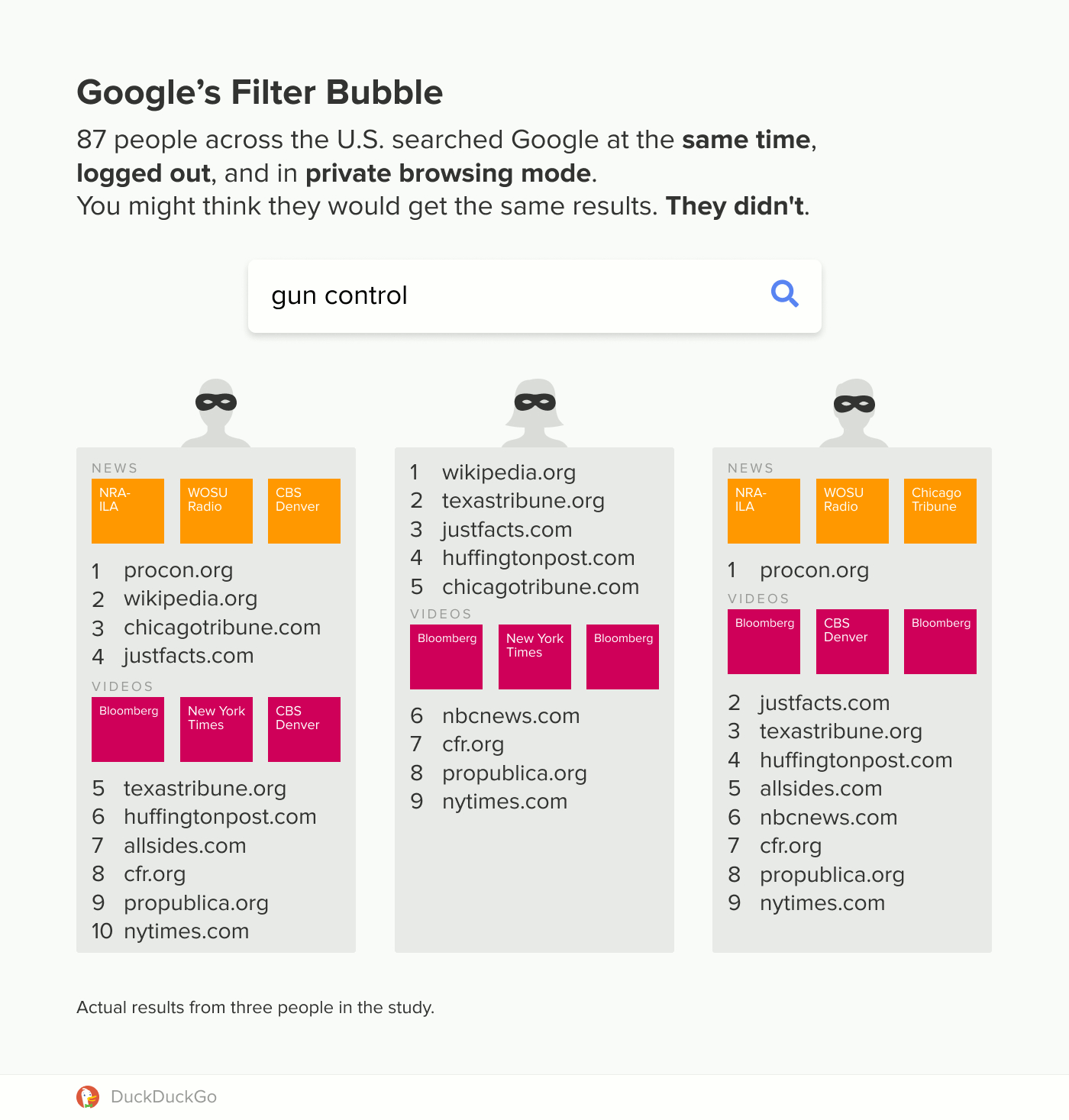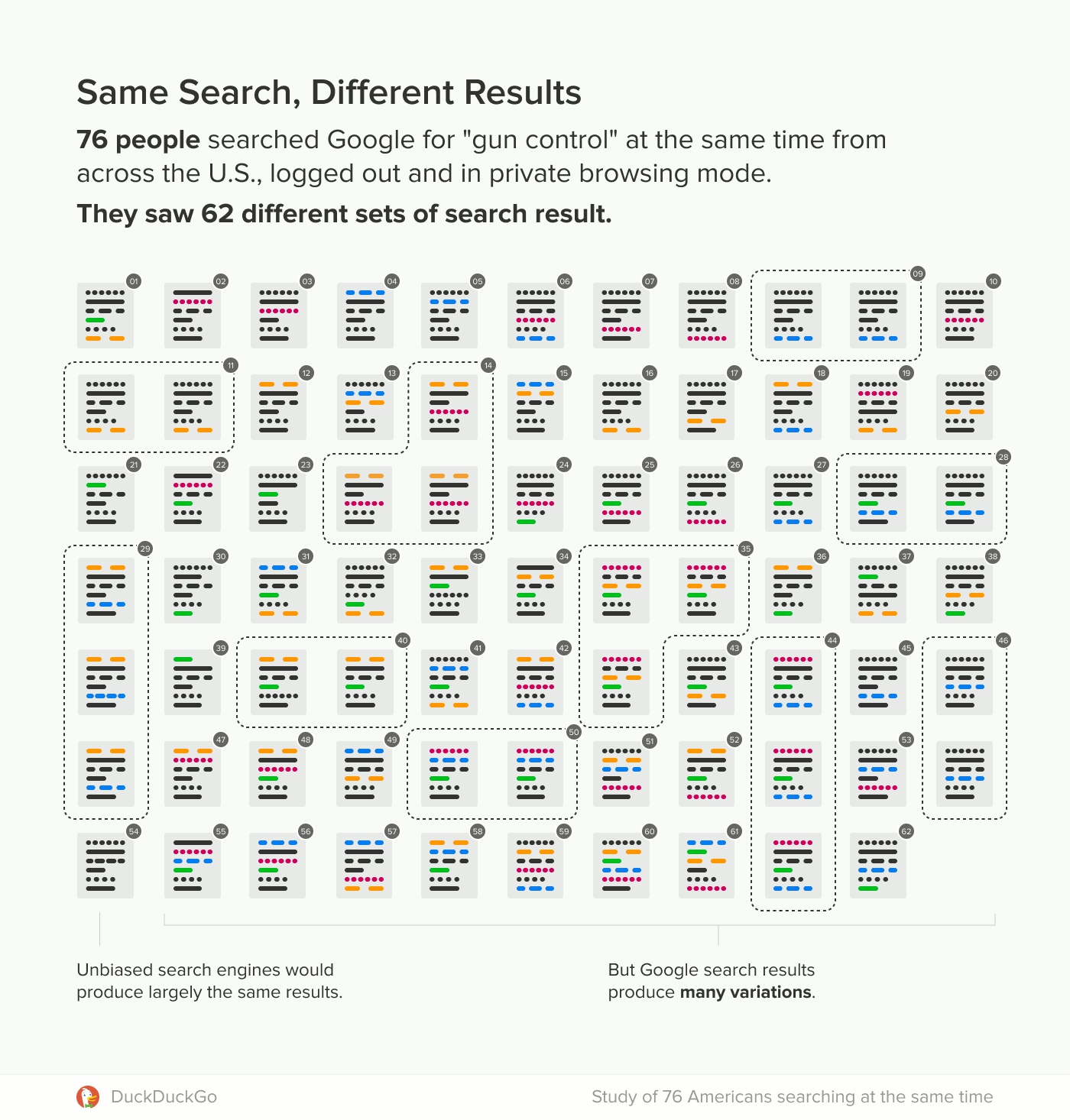A hot potato: It's worth noting that these results should be considered with a bit of caution. After all, the study was conducted by a Google competitor with a vested interest in attracting rival business. Even still, the results are fascinating and in line with other rumblings we've heard related to the not-so-private nature of Incognito mode.
DuckDuckGo, makers of the privacy-minded search engine by the same name, has conducted a follow-up study on the state of Google's filter bubble.
A filter bubble, for those unaware, is the alleged manipulation of search results based on your personal data such as past search history, your location, browsing history and even purchase history. The idea is that these metrics can be used to create personalized search results based on what a given algorithm thinks you might be most likely to click on.
The problem, of course, is that sometimes, personalized recommendations aren't wanted. Sometimes, you want to be able to access unbiased information or gather details on a topic you aren't well versed in. Personalized search results can skew such research.
The logical step for someone wishing to get unbiased search results (assuming they are even aware of filter bubbles) would be to remove themselves from the filter bubble. With regard to Google, one would seemingly do this by logging out of their Google account and entering private browsing mode. Yet in a recent study from DuckDuckGo, these steps proved ineffective in offering filter bubble protection.

DuckDuckGo had 87 participants across the US search Google at the same time, logged out and in private browsing mode. You'd think their results would be similar but that wasn't the case.
According to DuckDuckGo, most people saw results unique to them when searching for terms like "gun control" and "vaccinations." Furthermore, Google included links for some users that it did not include for others and there was significant variation in the News and Videos infoboxes.
The order of links also varied. This is important to note because links that are presented first are much more likely to be clicked versus those further down the page, thus influencing reach.

Full details on the study are available for those interested in digging deeper.
Lead image via Benny Thaibert, Shutterstock
